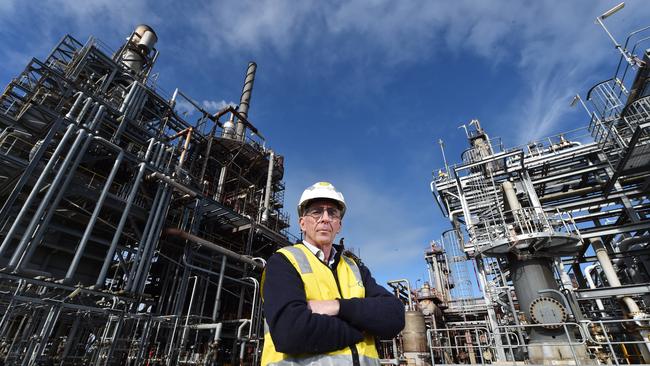
The fate of Qenos’s Melbourne and Sydney manufacturing plants is not yet set in stone, and the fact that the company – owned by China National Chemical – has recently spent money rebuilding a cooling tower at its Botany Bay plastics plant offers hope not all of its Australian facilities will be closed.
But if one or both of the plants are shuttered, they will join a raft of major plant closures since all the hullabaloo about securing domestic supply chains during the pandemic – including Incitec Pivot’s Gibson Island fertiliser plant in Brisbane, Exxon’s oil refinery in Melbourne’s Altona, a similar facility owned by BP in Kwinana, south of Perth, and Alcoa’s alumina refinery also in Kwinana. Similar threats hang over BHP’s nickel smelter in Kalgoorlie and refinery in Kwinana.
All of these plants are old, sub-scale by global standards, and suffer – compared to international competitors – from higher labour, gas and energy costs, and from rising pressure to comply with environmental standards.
But the threat to Qenos’s local facilities is also a timely reminder of the knock-on effects of the closure of manufacturing plants.
Tight gas markets have played a part in Qenos’s troubles – its gas bills reportedly doubled in 2023. But the major cause of its most recent problems was the shuttering in 2021 of Exxon’s Altona refinery, which supplied the LPG used as a feedstock for Qenos’s plastics production lines.
That happened under the previous Morrison government – and amid plenty of warnings about the downstream effects of its closure, including from Qenos, which was forced to close half the lines of its own production facility in the wake of the exit of the Exxon plant.
Any decision by BHP to close its Kalgoorlie nickel smelter will also ripple through the broader WA mining industry. The smelter supplies sulphuric acid, a by-product of its operations, to other parts of the state’s mining industry – and, in particular, to Lynas’s new cracking and leaching plant outside of Kalgoorlie.
As Lynas boss Amanda Lacaze said, the manufacturing and processing industry in Australia is an ecosystem, not a collection of unrelated operations.
And perhaps more important is the loss of the technical know-how that comes with the closure of these type of facilities.
Much is made of the loss of blue-collar jobs in manufacturing. But workers in these types of plants need substantial technical skills to keep these plants open, along with the expertise of chemists and a host of other professionals. And, despite the hype around “green jobs” in energy, hydrogen, lithium and rare earths, it is difficult to build that kind of expertise from scratch.
Companies that rely on gas for power and as an input are caught between the pressure to ditch fossil fuel extraction and the political and commercial cost of requiring gas producers to reserve more production for the domestic market.
Those pressures may mean that Australia is destined to shed the remaining industries that are dependent on petrochemical products as a feedstock.
Saving Australia’s remaining manufacturing and chemicals industries – and building new ones – will take actual policy designed to attract investment, backed by long-term support from successive governments of both political persuasions.




All the post-pandemic talk of resurrecting Australia’s manufacturing sector and securing local supply chains seems like a lifetime away, amid talk that yet another manufacturer could go quietly into the night this year.